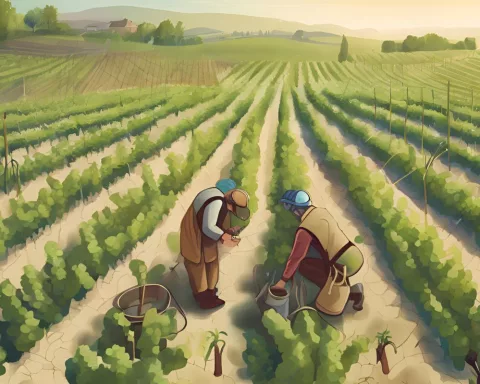South Africa is undergoing a cultural revolution led by the Department of Sport, Arts and Culture and the South African Geographical Names Council. The aim is to ensure that geographical names truly reflect the languages, natural landscapes, and cultural heritage of its inhabitants and remove the remaining traces of colonial and apartheid-era influences. The initiative encourages individuals to participate in the renaming process to resonate with their distinct languages and cultural heritage, with significant progress already seen in some provinces. The goal is to leave a legacy of places with names that mirror a democratic South Africa in terms of its many languages and cultural heritage.
What is the purpose of South Africa’s geographical name rebranding?
The purpose of South Africa’s geographical name rebranding is to ensure that the names truly reflect the languages, natural landscapes, and cultural heritage of its inhabitants. It aims to remove the remaining traces of colonial and apartheid-era influences that are still prominent in the names of numerous villages, towns, and cities. The initiative encourages individuals to partake in the renaming process to resonate with their distinct languages and cultural heritage.
South Africa’s Cultural Revolution
In the very core of South Africa, an influential transition is in progress. It’s led by the Department of Sport, Arts and Culture and the South African Geographical Names Council (SAGNC). The purpose of this transformation is the assurance that geographical names in South Africa truly reflect the languages, natural landscapes, and multifaceted cultural heritage of its inhabitants.
The SAGNC, which was formed as per the South African Geographical Names Act, No. 118 of 1998, has a critical task to spearhead this transition and to alter South Africa’s naming landscape. The main intention of this project is to remove the remaining traces of colonial and apartheid-era influences that are still prominent in the names of numerous villages, towns, and cities.
Significant strides towards this transformation have started to surface predominantly in Eastern Cape, Mpumalanga, and Limpopo provinces. A clear shift in the naming of important towns and cities is noticeable, outlining the progress being made.
A New Landscape
In the last trio of years, an impressive tally of 157 geographical name revisions have transpired across the nation. Some notable changes include Pomeroy, now recognized as Solomon Linda in KwaZulu-Natal, Port Elizabeth has been reborn as Gqeberha, and Uitenhage has been renamed to Kariega in Eastern Cape.
Furthermore, East London Airport has been renamed as King Phalo Airport, Brandfort has been rebranded as Winnie Mandela in Free State, Fort Beaufort is now known as Kwa-Maqoma, and Somerset East is now proudly referred to as KwaNojoli, both located in Eastern Cape.
However, this movement isn’t an isolated process. The SAGNC launched comprehensive Awareness and Capacity Building Campaigns, urging South Africans to participate actively in this transformative journey. This initiative encourages individuals to partake in the renaming process of villages, towns, cities, and geographical landmarks to resonate with their distinct languages and cultural heritage.
Amplifying Voices and Building Legacy
Palesa Kadi, the Chairperson of the South African Geographical Names Council, highlighted the importance of this mission, “We need to bequeath to our children and our grandchildren a legacy of places with names that mirror a democratic South Africa in terms of its many languages and cultural heritage.”
The council offers a platform for local inhabitants who deem the name of their village, town, or city as inappropriate, offensive, incorrectly spelled, or unregistered. They are inspired to reach out to their closest Provincial Geographical Names Committee or visit the SAGNC website to learn about the correct procedures for proposing changes, corrections, or registrations.
As a part of the Awareness and Capacity Building Campaigns, the provinces of Free State, Northern Cape, and Northwest will host these initiatives in 2023. Other provinces are scheduled to join them in 2024, with the Capacity Building Workshop in Northwest planned to be held in Rustenburg.
The process of transformation isn’t merely a change of names. It is an attempt to reclaim history, to bring to light the suppressed narratives of indigenous cultures, and to showcase the rich linguistic diversity of South Africa. It is an effort to ensure that every signboard, every town, and every city reflects the lively and diverse spirit of this nation.
What is South Africa’s cultural revolution?
South Africa’s cultural revolution is a transformation led by the Department of Sport, Arts and Culture and the South African Geographical Names Council. The aim is to ensure that geographical names truly reflect the languages, natural landscapes, and cultural heritage of its inhabitants and remove the remaining traces of colonial and apartheid-era influences.
What is the aim of South Africa’s geographical name rebranding?
The aim of South Africa’s geographical name rebranding is to remove the remaining traces of colonial and apartheid-era influences that are still prominent in the names of numerous villages, towns, and cities. It aims to ensure that the names truly reflect the languages, natural landscapes, and cultural heritage of its inhabitants.
Which provinces have seen significant progress in South Africa’s geographical name rebranding?
Significant progress towards South Africa’s geographical name rebranding has been seen predominantly in Eastern Cape, Mpumalanga, and Limpopo provinces.
What are some notable geographical name revisions that have taken place in South Africa?
Some notable geographical name revisions that have taken place in South Africa include Pomeroy, now recognized as Solomon Linda in KwaZulu-Natal, Port Elizabeth has been reborn as Gqeberha, and Uitenhage has been renamed to Kariega in Eastern Cape.
How can individuals participate in South Africa’s geographical name rebranding process?
Individuals can participate in South Africa’s geographical name rebranding process by reaching out to their closest Provincial Geographical Names Committee or visiting the SAGNC website to learn about the correct procedures for proposing changes, corrections, or registrations.
What is the legacy that South Africa’s geographical name rebranding aims to leave?
The legacy that South Africa’s geographical name rebranding aims to leave is a nation with places that have names that mirror a democratic South Africa in terms of its many languages and cultural heritage. It aims to ensure that every signboard, every town, and every city reflects the lively and diverse spirit of this nation.








